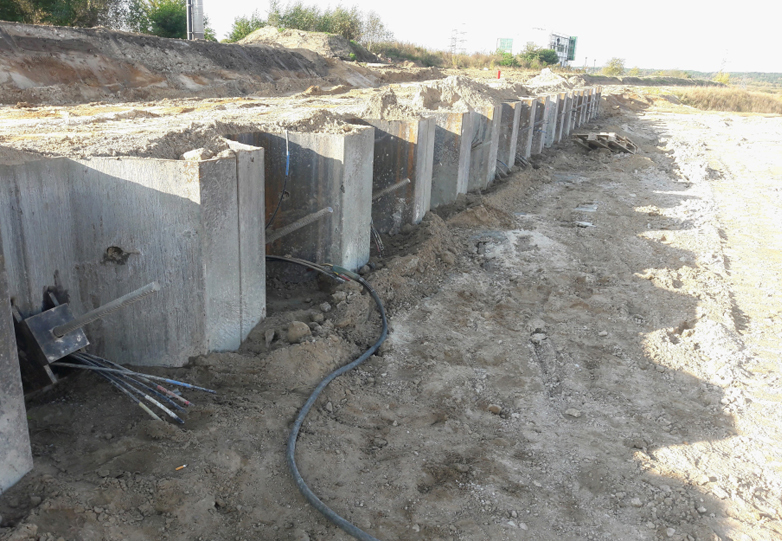Identification of ground anchors reliability based on acceptance tests and the polynomial chaos expansion method
1
Faculty of Civil Engineering, University of Science and Technology, Poland
2
Institute of Environmental Engineering, Wrocław University of Environmental and Life Sciences, Poland
3
Department of Civil Engineering, Wrocław University of Environmental and Life Sciences, Poland
4
Gollwitzer, Gollwitzer Polska Sp. z o.o., Poland
Submission date: 2024-08-05
Acceptance date: 2024-08-27
Publication date: 2025-09-16
Corresponding author
Michał Grzegorz Śpitalniak
Institute of Environmental Engineering, Wrocław University of Environmental and Life Sciences, sq. Gruwnaldzki 24, 50-363, Wrocław, Poland
Institute of Environmental Engineering, Wrocław University of Environmental and Life Sciences, sq. Gruwnaldzki 24, 50-363, Wrocław, Poland
Archives of Civil Engineering 2025;71(3):509-521
KEYWORDS
TOPICS
ABSTRACT
The paper presents a reliability analysis of ground anchors based on acceptance tests and the polynomial chaos expansion method. First of all, it was estimated the probability of meeting the requirements of acceptance tests based on anchor tests realised within the S10 expressway near Bydgoszcz (Poland). The testing of grouted anchors is a mandatory requirement. The Test Method 3 TM3 was used in the given case, according to the EN ISO 22477-5:2018 standard. Based on the direct statistics of anchor displacement over a cycle of two measurements of 3 minutes and 15 minutes, creep velocity values were generated using the polynomial chaos expansion PCE and Monte Carlo MC methods. The polynomial chaos expansion is one of the available approaches to describe probability densities function PDF. The PCE method is an extension of techniques using the Fourier series or Taylor series. PCE is dedicated to density functions and is based on specific polynomial functions. The PoCET package, which is a set of computational tools in the Matlab environment, was used to carry out the calculations. Creep speeds calculated using the PCE method take into account possible inaccuracies in the time reading of the two measurements of 3 and 15 minutes. Based on the generated creep velocities, the Cornell reliability index β_c was estimated to meet the requirements of acceptance testing of ground anchors. The obtained values of the β_c meet the requirements for the RC3 reliability class for structures with a service life of 50 years.
Share
RELATED ARTICLE
We process personal data collected when visiting the website. The function of obtaining information about users and their behavior is carried out by voluntarily entered information in forms and saving cookies in end devices. Data, including cookies, are used to provide services, improve the user experience and to analyze the traffic in accordance with the Privacy policy. Data are also collected and processed by Google Analytics tool (more).
You can change cookies settings in your browser. Restricted use of cookies in the browser configuration may affect some functionalities of the website.
You can change cookies settings in your browser. Restricted use of cookies in the browser configuration may affect some functionalities of the website.




